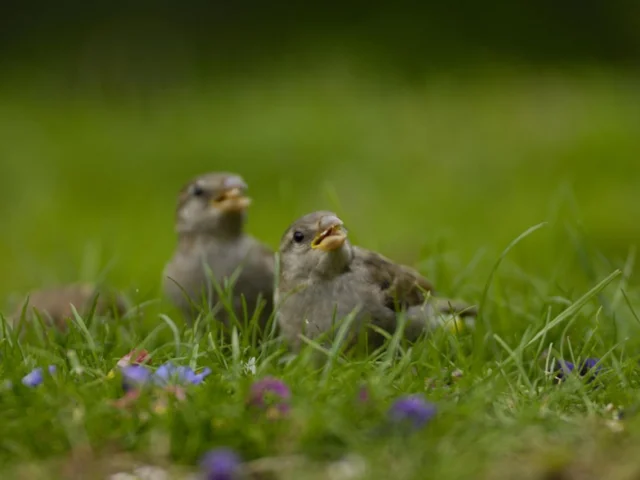Avoiding the cutbacks
8fbfed5a-d6d6-4aa7-9ae6-0a72c234d012

The RSPB is encouraging householders to leave their gardens untended over the summer as part of its Give Nature a Home campaign.
In spring, the RSPB received a number of reports from concerned people about vegetation on public and private land being cut back. With the forecast predicting sunny spells, it’s not unusual to hear about or see people enthusiastically trimming back garden foliage, often using super-efficient electric tools that give vulnerable wildlife no chance of escape.
Instead of rushing to cut back bushes, shrubs and trees, which often causes harm to active bird’s nests and wildlife such as Hedgehogs and Slow-worms, the RSPB is urging people to put down the secateurs and let their gardens grow – not only saving time and effort, but protecting nature at the same time.
RSPB spokesperson Ben Andrew said: “Birds in and around our gardens, parks, towns and cities, including favourites like Robins and Blackbirds, are still incubating eggs, feeding chicks in the nest or looking after vulnerable just-fledged chicks that can’t yet fly properly. With some birds nesting from March through to the end of August, it’s important that garden clearance is delayed until September at the earliest.
"Some of this may be unavoidable, especially for safety reasons, but in many cases a little planning and sparing a thought for wildlife could reduce disturbance. We’d like everyone to simply ask themselves: ‘do we really have to cut it back right now'?”
As well as cutting back on cutting back, there are many simple things that individuals can do to encourage nature in their gardens. Keeping a shallow bowl topped up with fresh water will attract birds, and provide them with a constant source of fresh drinking and bathing water during the long, warm days. With the summer holidays approaching, making a ‘bug hotel’ is a fun project for all the family to get involved in. You can expect lots of insects to pay a visit, including leaf-cutter bees over summer and hibernating ladybirds during winter.
Creating a wildlife haven by using plants that provide food, shelter and nesting sites for different species will provide them with much needed resources throughout the summer and into the autumn. For more hints, tips and advice on how to build a wildlife friendly garden or open space visit: rspb.org.uk/homes.
In spring, the RSPB received a number of reports from concerned people about vegetation on public and private land being cut back. With the forecast predicting sunny spells, it’s not unusual to hear about or see people enthusiastically trimming back garden foliage, often using super-efficient electric tools that give vulnerable wildlife no chance of escape.
Instead of rushing to cut back bushes, shrubs and trees, which often causes harm to active bird’s nests and wildlife such as Hedgehogs and Slow-worms, the RSPB is urging people to put down the secateurs and let their gardens grow – not only saving time and effort, but protecting nature at the same time.
RSPB spokesperson Ben Andrew said: “Birds in and around our gardens, parks, towns and cities, including favourites like Robins and Blackbirds, are still incubating eggs, feeding chicks in the nest or looking after vulnerable just-fledged chicks that can’t yet fly properly. With some birds nesting from March through to the end of August, it’s important that garden clearance is delayed until September at the earliest.
"Some of this may be unavoidable, especially for safety reasons, but in many cases a little planning and sparing a thought for wildlife could reduce disturbance. We’d like everyone to simply ask themselves: ‘do we really have to cut it back right now'?”
As well as cutting back on cutting back, there are many simple things that individuals can do to encourage nature in their gardens. Keeping a shallow bowl topped up with fresh water will attract birds, and provide them with a constant source of fresh drinking and bathing water during the long, warm days. With the summer holidays approaching, making a ‘bug hotel’ is a fun project for all the family to get involved in. You can expect lots of insects to pay a visit, including leaf-cutter bees over summer and hibernating ladybirds during winter.
Creating a wildlife haven by using plants that provide food, shelter and nesting sites for different species will provide them with much needed resources throughout the summer and into the autumn. For more hints, tips and advice on how to build a wildlife friendly garden or open space visit: rspb.org.uk/homes.

